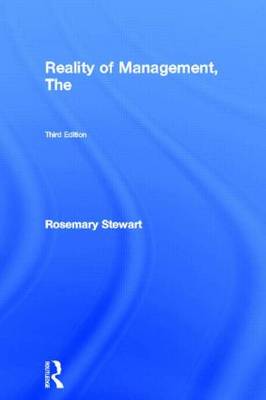Piper S.
2 total works
"The Reality of Management", now in its third edition, carves a clear course through the fads and fashions of management theory providing the manager with a practical and usable guide to managing effectively. First published in the 1960s, this thoroughly revised and updated edition finds the fundamentals of managing remain the same. It provides a unique long perspective on current managerial fashions, on the evidence of their utility and distinguishing what is new from what is reinvention. "The Reality of Management" is addressed to all managers who wish to learn more about their jobs for the practical reason of becoming better managers and to all students who seek to learn something of the realities of management. Offering practical, hands-on, readable approach to the realities of management, it includes descriptions of social research into management practice and problems. This title stands as a management classic alongside Peter Drucker, Mary Parker Follet, Charles Handy and Michael Porter's works.
'I was horrified by the grasshopper way in which I worked'...'The diary highlighted the amount of time I spent on work that should be done by subordinates.' These are two of the many comments of the managers who took part in the research described in this book, when 160 managers kept a specially designed diary for four weeks. The managers came from over a hundred industrial companies and from all the main functions. This new edition makes two major changes. First, it shows the relevance of this study in forty years of research into what managers do. It is still the largest study and the only one that shows how management training needs to take account both of what the 'average' manager does and of the great variation between different jobs and individuals. Second, it develops the last chapter now called 'Too Little Time? How to Help Yourself' by using the author's experience of helping many managers to apply the lessons given in the first edition. 'Too little time' is the complaint of many managers. This book is addressed to all those who do not positively enjoy having too little time. It can help managers to analyse what they do, why they do it, and whether they can do it better.
'...an interesting and at the same time entertaining book.' Economic Journal
'...an interesting and at the same time entertaining book.' Economic Journal

